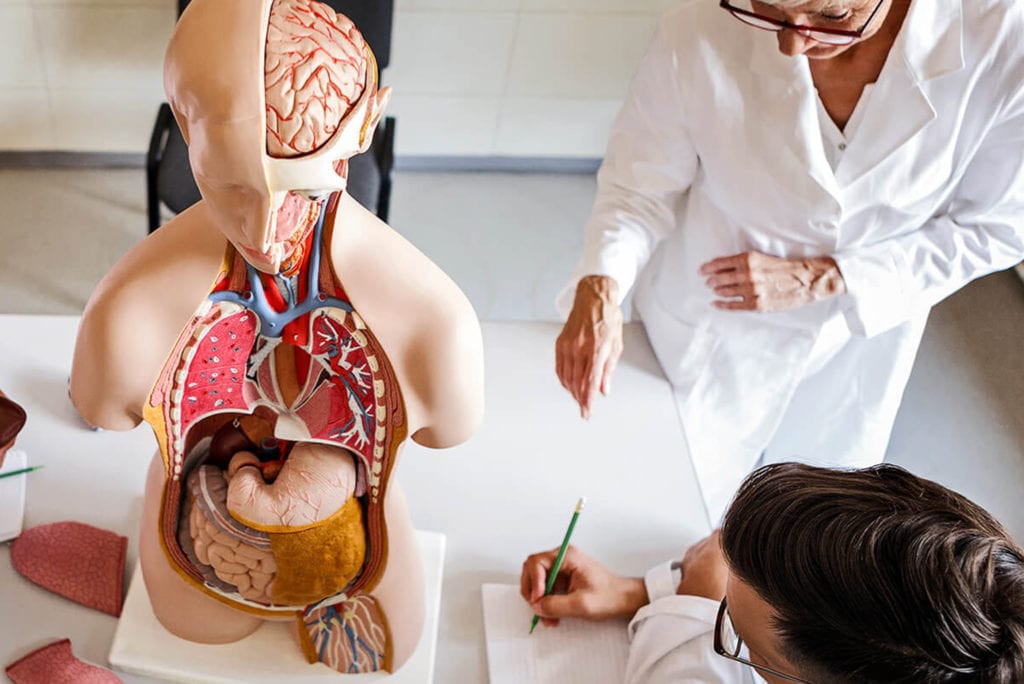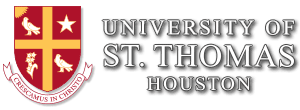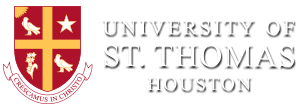Be Bold Blog
The University of St. Thomas (UST) is Houston’s Catholic University, committed to the Catholic intellectual tradition and the dialogue between faith and reason. Our blog is dedicated to helping you explore your future career possibilities and how to make the most of your college experience.
Best Pre-Med Majors
What Are the Best Pre-Med Majors? Advice for Becoming a Competitive Applicant.
It’s no secret that getting into medical school is a highly involved and competitive endeavor. And it’s only gotten more so in the last decade. In 2020, just 41 percent of med school applicants matriculated compared to 44 percent in 2010, according to the Association of American Medical Colleges (AAMC).
If you’re serious about pursuing a career in medicine, you know you’ll need good grades and a high MCAT score to get into med school, but what else should you focus on to become a competitive applicant? What are the best pre-med majors to pursue as an undergrad?
We enlisted Dr. Gabriel Villares, associate professor of Biology and director of the Pre-Health Professions Program at the University of St. Thomas (UST), to help answer this question and provide additional advice for increasing your chances of gaining acceptance into medical school.

First, what is a pre-med major?
Before we dive in, let’s talk about the term “pre-med.” Pre-med tracks aren’t technically a major, but rather a program that ensures students are fulfilling all of the pre-requisite courses needed to apply for medical school, such as chemistry, physics, molecular biology, laboratory work, statistics and more.
You can be on a pre-med track and elect any undergraduate major, be it art, language, humanities or science. So choosing your major as a pre-med student is a decision you’ll still need to make based on your own personal skills and interests.
One common mistake students make is committing to an especially challenging major solely to impress medical school admissions committees. Why is that a problem? Because you might end up with a lower overall GPA, which will not help you stand out in a field of high-achieving applicants. Remember, you are up against other med school hopefuls with similarly stellar grades.
Choosing a subject that excites you is a much better way to develop as a person and as a med school candidate. Plus, gauging the difficulty of a degree is highly subjective, as it depends on your unique strengths, weaknesses, personality and other factors.
“If you aren’t a science major, that’s fine,” Dr. Villares states. “Go with your heart because it’s likely to show in your grades and your application that you’re passionate about something.”
As long as you complete the pre-med track, prove your aptitude for science with a solid GPA, and earn a commendable score on the MCAT, you can be a competitive med school candidate.
How to determine the best pre-med majors for you
Historically, successful med school applicants have overwhelming held degrees in biological and physical sciences. On one hand this makes sense, as you need to excel in these subjects to understand the complexities of the human body. However, time has proven that being a doctor requires a broad spectrum of skills beyond knowledge of anatomy and diagnostic ability.
“These days, admissions committees are more interested in well-rounded applicants as opposed to students who haven’t done anything else in college except study,” explains Dr. Villares. “More schools are looking for students who have a real interest in medicine and aren’t just ticking off the boxes.”
Simply put, there is no one major that is guaranteed to get you admitted. Determining the best pre-med major for you really comes down to personal preferences and should be carefully considered. Use this guide as a jumping off point for your journey to medical school.
Valuable pre-med majors to consider
If you’re looking for some ideas of pre-med majors that would provide a solid foundation of knowledge for medical school, there are certain options that are more common than others. As you explore where your interests lie, consider the following programs:
- Biology: The most enduring and classic choice for pre-med majors, biology concerns itself with nothing more or less than the science of all living things on Earth. One advantage of declaring a biology major is that there is significant overlap in the pre-med course track, allowing students to “double dip” or take one class to satisfy multiply requirements. A potential disadvantage, however, is that it may be more difficult to stand out in a sea of med school applicants who all hold the same degree.
- Chemistry: Unsurprisingly, the science of substances and the ways they interact has also long been a popular choice for pre-med majors. Chemistry majors research substances and conduct experiments to create useful compounds that can solve problems in medicine, energy, agriculture and many more areas. The technical, analytic and scientific skills acquired through this degree can go a long way to setting students up for success in med school.
- Psychology: As a social science discipline that seeks to understand the mysteries of the mind and human behavior, this major can be a real asset for physicians. It reinforces the importance of emotional intelligence and helps students develop those skills. A psychology degree typically also includes courses in research, statistics and service learning – all of which are directly applicable to healthcare. More medical schools are specializing in primary care in response to increased demand for empathetic and communicative doctors who listen carefully and treat patients as individuals.
- English: Although it may seem unconventional, English majors are very well represented in the field of medicine. Considering that studying literature requires critical thinking, research, attention to detail, and excellent writing and citing skills, it shouldn’t be surprising that English majors can and do make excellent physicians. English majors pursuing a pre-med track must carefully plan semesters if they hope to graduate in four years, as all elective credits will probably be filled by pre-med courses. Excellent reading comprehension skills also come in handy for excelling on the MCAT exam.
- Spanish: Not only will this major help you communicate with more than 40 million Spanish speakers in the United States, but it could also open up a world of opportunities to work, study and volunteer abroad. A Spanish degree requires much more than conjugating verbs and memorizing vocabulary. Students learn history, philosophy and ethics, and develop intercultural communication skills that are incredibly useful for a physician. Plus, a foreign language degree just might set you apart from more traditional pre-med majors.
How to become a competitive medical school applicant
The best way to build a strong med school application is to join a pre-med track as early as possible. The advisors and faculty in these programs specialize in helping guide and support students through every stage of the process and facilitate all the information you’ll need to succeed.
Regardless of what pre-med major you choose, you should be focused on achieving high marks throughout the program. This mindset should also be applied toward studying for the MCAT exam, which is one of the most important assessments you’ll complete on your path to becoming a physician.
“Your GPA and MCAT score will get the committee to open your file. Everything else in your application will determine if you get an interview or not,” Dr. Villares explains. He advises his UST students to aim for a score of at least 510 on the MCAT and a 3.8 GPA.
Aside from GPA and MCAT scores, your other application elements can help demonstrate your aptitude for succeeding in medical school. These often include:
- Your personal statement
- Secondary essays
- Letters of recommendation
- A list of extracurricular activities and leadership positions
- Descriptions of intentional exploration of the profession through shadowing, volunteering, working etc.
Make sure to maintain a life outside of your academic pursuits, as well. Medical school admissions committees embrace students who show they are passionate about hobbies, involved in extracurriculars, committed to serving their community and capable of maintaining empathy and composure during difficult conversations.
Start planning your pre-med path
There is no comprehensive list of the best pre-med majors for future physicians. Your best bet is choosing a subject that excites you as you begin compiling the necessary pieces of a stand-out med school application.
Once you’ve determined your desired major, you’d be wise to find a school with a well-established pre-medical program that can provide the guidance and support you’ll need along the way. Find out what you should be looking for in our article “6 Features the Best Pre-Med Schools in Texas Have in Common.”
Not sure about committing to pre-med? Contact a UST admissions counselorto get a better idea if a pre-med major is right for you.
Ready to take the next step?
Related articles
About UST
The University of St. Thomas (UST) is Houston’s Catholic University, committed to the religious, ethical and intellectual traditions of Catholic higher education. For more than 70 years, we’ve been graduating students like you into successful careers in medicine, education, business, public administration and more – throughout Houston and across the globe.

